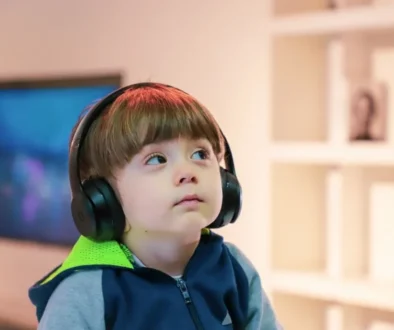Getting a First Autism Diagnosis: A Guide to a Comprehensive Diagnosis
Do you think your child has autism? Well, they’re not alone! In fact, 1 in 54 kids is diagnosed with ASD.
Autism is a common developmental disorder that hinders communication and the ability to interact. However, how can you know for sure if your kiddo is autistic?
Don’t worry, with this guide you can find out! We investigated the early warning signs to the type of assessments to make sure you have all the information you need about a first autism diagnosis.
Now, are you ready to get started? Here’s an in-depth look at how autism is diagnosed:
Early Signs of Autism
Diagnosing autism can be tricky, especially since there’s no test that can detect it, like a blood test. Doctors have to instead look at a child’s behavior and developmental history to make the diagnosis.
Autism can be identified in children 18 months or younger. However, doctors usually diagnose a child around the age of two. Certainly, a child can be diagnosed later, although the longer you delay the process, the more you risk not getting your child the early help they need.
If you’re unsure if your child or a loved one has autism, a few early signs include but are not limited to:
- Avoiding eye contact
- Getting upset or confused by changes in routine
- Having little to no interest in playing with caretakers or other children
- Difficulty communicating or limited use of language
- Sometimes finding it difficult to deal with certain tastes, textures, or sounds
- Having unusual interests
- Having difficulty coping
When and Why To Get an Autism Assessment
If your child experiences some of the early signs of autism, it’s best to get an assessment sooner rather than later. In fact, doctors recommended getting an evaluation three months after repeatedly seeing signs.
Now, you may be wondering, “why?” Well, that’s a little more complicated. The assessment assesses where your child is on the spectrum.
In doing so, it helps to promote healthy and accepting behavior. Since children are able to be themselves and discuss their thoughts and feelings without being judged (if old enough), the assessment can be a great learning experience for both you and your child.
Also, it provides key information about your child’s strengths, skills, and areas that need improvement. It can be a great way to understand your child and why he or she acts the way they do.
Types of Autism Assessments
Now there isn’t just one way to diagnose autism. In fact, doctors and specialists use a variety of different tools to examine and screen for autism. They range from simplistic questionnaires to formal assessments. Here are a few common tests doctor often recommended:
The Ages and Stages Questionnaire
This questionnaire is designed to examine different developmental challenges at certain ages. However, most parents like it because you don’t need to go to a doctor, get a referral, or wait for an available appointment. Instead, you can hop on the company website and take the questionnaire straight from there.
In fact, you (the parent) answer the questions about your child’s motor skills, social ability, and overall behavior. With an average of 25 to 30 questions, it usually takes about 15 to 20 minutes to complete. Once you’ve finished, it automatically calculates your child’s results and tells you areas that need improvement.
However, don’t think the questionnaire will solve all your worries. It’s a stepping stone to understanding your child and their development. Thus, it should be used in conjunction with a formal assessment, not by itself.
Screening for Toddlers and Young Children
Another assessment doctors tend to administer is the STAT or screening for autism in toddlers and young children. This assessment was created to assess children between 24 and 36 months.
It evaluates crucial communicative and social behaviors like playing, imitation, and directing attention. It takes about 20 minutes to administer, and the results can be found out right away either from an experienced provider or community service health worker.
Parent Evaluation of Development Status
As parents, you see your child more than any doctor or specialist. However, If you have concerns that doctors aren’t acknowledging or are simply just worried about, try taking the Parent Evaluation of Development Status.
You’re asked ten questions, all of which have extra space so you can explain your answer. This assessment is loved by many by the way it involves parents. It puts the concerns of parents first rather than just asking how their child has behaved.
Once finished, the assessment is automatically graded and decides based on the interpretation algorithm whether your child should see a specialist, be watched carefully, or should be screened further.
Unlike other assessments, it provides a solution which some parents find comforting in this worrying time. So if you don’t know where to turn or know what your child needs, take the parent evaluation.
What Does an Autism Diagnosis Mean?
Being diagnosed with autism isn’t a negative thing. In fact, it can help a child connect with others who are facing similar challenges and help them cope with their diagnosis. It can even lead to more specialist support.
While it may seem like getting a diagnosis is a bad thing, it’s all about recognition. Now that doctors recognize that your child has difficulties, whether it be with learning, motor skills, or communication, with that in mind, you can work with them to overcome those challenges. Let that be a positive.
The First Autism Diagnosis
Receiving your child’s first autism diagnosis is often long-awaited but painful to hear. To start, you first should look for the early signs. If seen repeatedly, take an assessment online or see a specialist to take an evaluation of your child.
The results will tell you where he or she is on the spectrum. They’ll also give some insight into their strengths, weakness, and areas that need to be improved the most.
Now, for more information about autism, contact us today. We look forward to helping your family stay healthy and happy!



